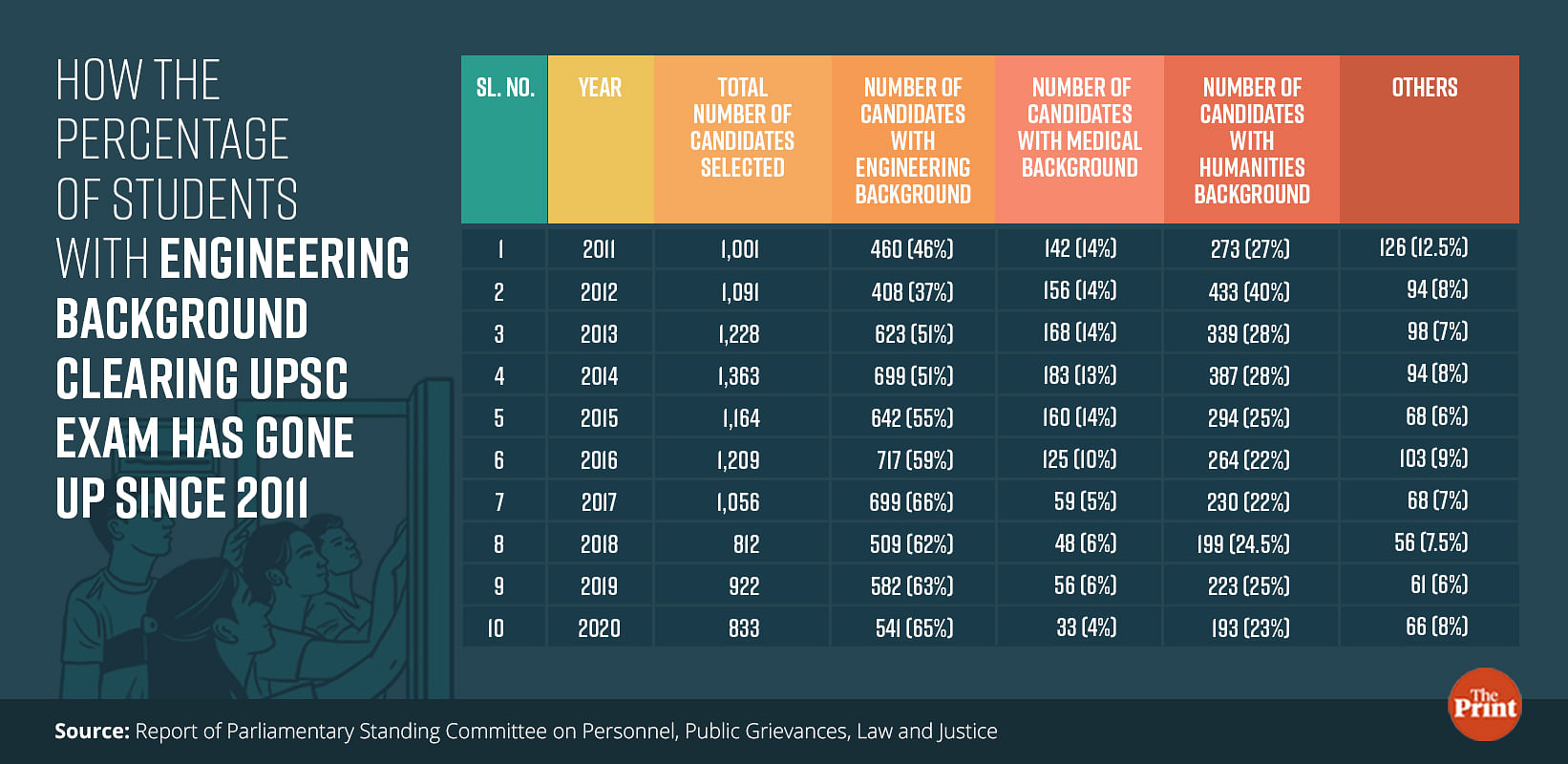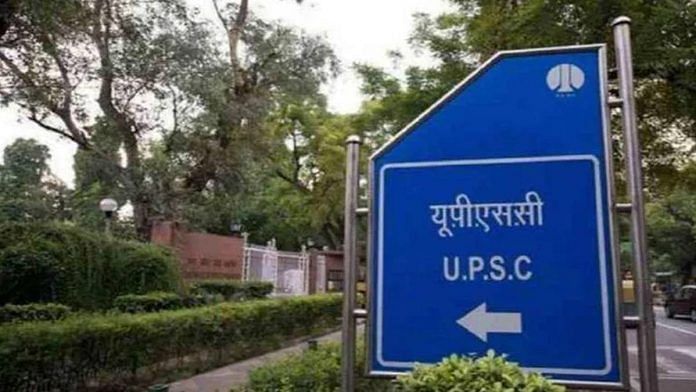New Delhi: There has been a steady increase in the number of engineers joining the Indian civil services over the past 10 years compared to candidates from a medical background, with the former accounting for 65 per cent of total candidates getting into the civil services in 2020, a parliamentary panel has stated in its report tabled Thursday.
The proportion of candidates who joined the civil services from engineering background increased from 46 per cent in 2011 to 65 per cent in 2020, while the proportion of candidates from medical background decreased from 14 per cent in 2011 to 4 per cent in 2020.
However, 70 per cent of recruits in the civil services by the UPSC comprise technocrats, which include engineers and medical professionals.
Meanwhile, candidates joining the civil services from the humanities — considered a preferred stream for aspiring civil servants — have mostly been on a decline from 2011 to 2020.
From 27 per cent such candidates qualifying for the annual civil services exam in 2011, the number decreased to 23 per cent in 2020, according to data in the report tabled by the Standing Committee on Personnel, Public Grievances, Law and Justice.

Headed by BJP’s Rajya Sabha member Sushil Modi, the committee flagged the high number of candidates from technical background being recruited into the civil services every year.
In its report, titled ‘Review of functioning of recruitment organisations of Government of India’, the panel pointed out that the “allurement to become a civil servant” is perhaps also adversely affecting other fields of work, which is also “a requirement of the nation”.
“Above 70 per cent of recruits in the civil services by UPSC (Union Public Service Commission) nowadays are from technical streams. Every year, hundreds of technocrats are thus being lost, who are likely to work in other specific areas which is also a requirement for the nation. So, doctors and top technocrats are being lost who can perform as very good doctors and engineers,” the parliamentary panel noted.
The panel further called for a rethink on the civil services’ recruitment process, in which the UPSC selects about 1,000 candidates every year from the civil services exam, who are posted across 19 different services.
The parliamentary panel also deliberated upon the performance of civil servants, their training and evaluation and observed that there was a decline in the quality of administration which, it said, could be on account of increasing workload.
“Earlier, the workload was less as the number of schemes were also perhaps less, giving them space to go to the people. Nowadays, it is very difficult for civil servants to find time and go to the people,” the parliamentary panel stated.
It noted that although with the changing times, the government has brought in several significant changes in the training methodology for civil servants, the efficiency, energy and intensity of the officers still needs to improve.
“… the officers need to be further trained for working in adverse situations, particularly to tackle law and order problems effectively. The Committee feels that a Civil Servant is an interface between the government and common public and works at the grassroots-level which requires considerable human touch and a sensitive approach towards the people. He/she works among the poor people most of the time and not the elite. If there is lack of sensitivity one cannot be a good administrator,” the panel said.
“So, the committee wishes to emphasise that the civil servant has to be given training in such a way that he develops a more humane and empathetic approach towards any issue,” it added.
The committee also observed that present-day civil servants did not possess the same legal prowess as their predecessors.
(Edited by Nida Fatima Siddiqui)
Also Read: An ‘affordable’ UPSC dream is taking off in small-town India. It can change the steel frame



